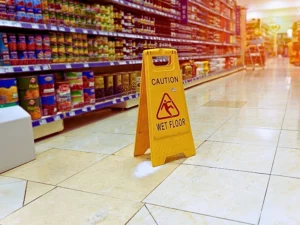Suing a hotel for negligence in Nevada comes with challenges. State law limits the liability of hotels for personal injuries and damage to guest property. Hotels are big business in Nevada, they employ around 1/3 of all Nevadan residents. They contribute a significant portion to the Nevadan state budget, and they are responsible for the majority of tourism to the state.
In short, hotels and casinos are big business in Nevada, and they have the influence that comes with the territory.
What Are the Rights of Hotel Guests?
Hotel guests in Nevada have different rights for their belongs and their persons. Therefore, the liability the hotel bears for each will vary.
No liability for damaged belongings
Nevada law specifically immunizes hotels from liability for any “theft, loss, damage or destruction of any property of a guest left in a room,” if the hotel provided the guest with a safe, makes the guest aware of the safe and the guest did not deposit the belongings in the vault for safekeeping.
Hotels need only provide a safe environment and make the guest aware of that to be immune from liability. The only exception is if the plaintiff is able to show that the hotel owner behaved in a “grossly negligent” manner.
In a traditional negligence lawsuit, the plaintiff must prove that the defendant owed the plaintiff a duty to act in a certain manner, the defendant violated that duty and that violation resulted in the plaintiff’s injuries.
In a grossly negligent lawsuit, the plaintiff must show that the defendant behaved with reckless disregard for the plaintiff’s safety. It requires the plaintiff to establish that the defendant knew his or her conduct was well beyond the bounds of accepted human behavior. This is a very difficult standard to meet.
Injury caused by non-employee
As a general rule, hotel owners are not liable for injuries sustained by their guests which are caused by non-employees. For example, guests who are attacked in the parking lot by random people cannot sue the hotel.
But plaintiffs may hold the hotel liable if they can show that the injury / wrongful act was foreseeable and establish that the hotel owner did not exercise due care for the safety of their guests.
In Nevada, “due care” means that the hotel provided reasonable security accommodations for the perceived threat. In practice, that means hotels do not have to provide security cameras in hotel towers. But it does mean that casinos need to hire bouncers and security guards for bars and nightclubs.
Whether an event is “foreseeable” depends as much on the law as it does on the facts when it comes to suing a hotel for negligence.
Injuries Caused by an Employee
Liability for injuries to hotel guests caused by hotel employees depends on several factors. For example, these may include the specific act or incident that caused the guest harm, whether it happened in the course of the worker performing his or her job duties, and where the act or incident resulting in harm occurred.
Often, guests may hold the hotel itself liable for injuries caused by employees if they occurred on the hotel grounds. To do so, however, they will typically need to prove the hotel was somehow negligent in allowing the injury/wrongful act to occur.
Negligence on the part of a hotel with regard to an employee causing injury to a guest may include shortcomings in conducting the appropriate pre-employment screening. Likewise, the hotel may be liable for harm caused by an employee if the injured victim can show a pattern of not addressing issues such as the one that caused his or her harm.
How Do You Sue a Hotel for Negligence?
Often, responsibility for the injuries that hotel guests suffer on the property falls to the hotel itself. Therefore, if you cannot reach a settlement through negotiations, you may consider filing a lawsuit against the hotel for your injuries.
As is the case with most personal injury cases in Nevada, you will generally have up to two years after the date of your accident to file a lawsuit. Filing outside the statute of limitations may result in a dismissal of your case. As such, you may lose your chance and right to recover compensation for your injury-associated losses.
Proving Negligence
For a successful negligence case against a hotel, you will need to establish three primary elements – the duty of care, a breach of this duty, and direct causation of the injury.
Although hotels are relieved of some liability, they still have a responsibility to take steps to keep guests safe from harm. To establish this duty of care, you may present documentation, such as the billing invoice or receipts for your stay.
After showing the hotel owed you a duty of care, you will need to prove how the hotel breached that duty. For example, you may present photos or video showing the hazard that caused your fall. Your photos may also show the lack of any warnings or safeguards to prevent hotel guests from falling victim to the hazard.
Proving that you were owed a duty of care as a guest, and that the hotel breached that duty, is not enough to recover compensation. You will also need to prove that you suffered injury as a result of this breach, and incurred recoverable damages.
Recovering Damages in Negligence Claims
Through a negligence lawsuit against a Nevada hotel, you may recover compensation for your injury-associated losses. The recoverable damages in such cases include your economic and non-economic losses. For example, you can receive monetary awards for losses such as associated medical expenses, lost wages, lost earning capacity, loss of enjoyment of life, and pain and suffering.
Learn More About Liability and Suing a Hotel for Negligence
Hotel Liability in Fires: Lessons From the MGM Grand and Hilton Fires
Hotel Liability For Assaults in Las Vegas
The Most Common Las Vegas Hotel Injuries
Is Your Las Vegas Hotel Keeping You Safe?
Can You Sue for Food Poisoning in a Hotel?
Hotel Escalator and Elevator Accident Risks





